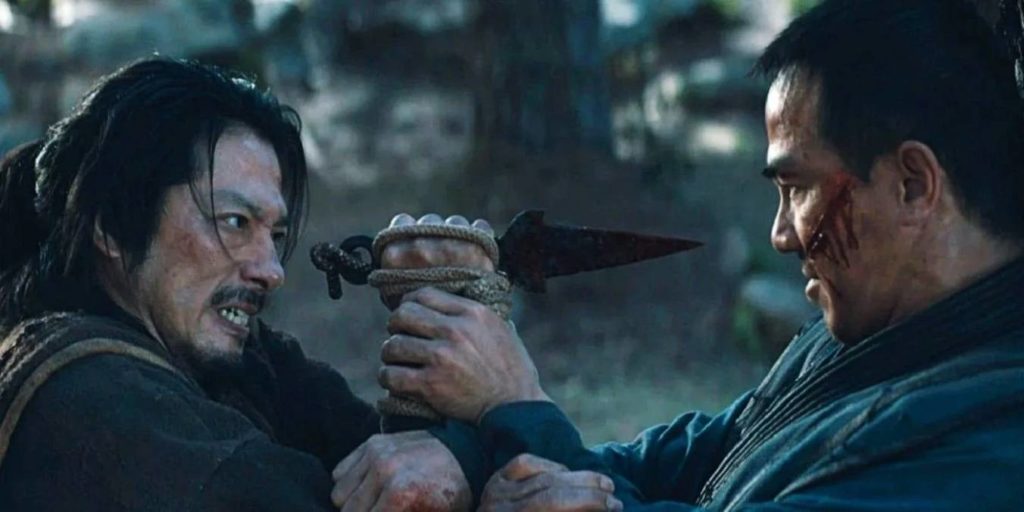More often than not, fans eventually get what they ask for. Whether that be the release of “Zack Snyder’s Justice League” or reversing the cancellation of a television series like “Arrested Development,” the entertainment business survives on pleasing audience members. That being said, the third “Mortal Kombat” adaptation to hit big screens, and the first in over twenty years, is not for the fans. Simon McQuoid’s “Mortal Kombat” betrays nearly everything that makes the source material popular and also secures a spot in the expansive halls of terrible video game movies.
As fighting games, the Mortal Kombat franchise earned its reputation through gameplay consisting of two players beating each other up on a two-dimensional plane. The games are deceivingly simple but appealed to generations of gamers with their gory camp and addictive skill-based gameplay.
In the convoluted world of the Mortal Kombat franchise, the main world for our characters is Earthrealm, a fictionalized planet Earth protected by the lightning god Raiden (Tadanobu Asano). The threat to Earthrealm’s existence is Outworld, a realm where evil baddies gather under the rule of warlock Shang Tsung (Chin Han). Finally, Netherrealm exists as basically just Hell. Every once in a while, these three realms converge in a fighting tournament where the winners gain favor from the gods and build power to eventually take over the other realms.
However, McQuoid’s“Mortal Kombat” lacks one of the key pieces of this puzzle: an actual tournament. The film instead follows newcomer to the universe Cole Young (Lewis Tan) as he trains to protect Earthrealm alongside franchise veterans like Jax (Mehcad Brooks), Sonya Blade (Jessica McNamee), Liu Kang (Ludi Lin) and others. Focusing on a bland newbie like Cole allows the other characters to explain the world’s logistics to him in stale monologues. The film takes its own universe too seriously, becoming far more deadpan than the games ever were. Anyone already invested in the lore would not care to have it poorly regurgitated, and no one unfamiliar with the material will want to care. “Mortal Kombat” lacks a critical understanding of how to appeal to its audience using this established universe.
“Mortal Kombat” works best when emulating the games. Guessing how the film earns its R rating would be easy: It showers any moment of violence with flowing rivers of ruby-red computer-generated blood, — occasionally throwing in some viscera for good measure. The effect of making every punch, kick or stabbing end with an amount of blood equal to the elevators in “The Shining” leaves people asking, “Does the human body even contain that much blood?” The action of “Mortal Kombat” generally proves to be excessive, but is often enthralling with its creativity, easily the film’s stand-out feature.
In “Mortal Kombat,” all of the good unfortunately only highlights the bad. McQuoid’s direction seems to hinder the film more than help it, employing awkward close-ups and lifeless wide shots with such repetition that it becomes numbing after a while. When the boring presentation gets combined with the plot’s lack of propulsion, it can quickly turn frustrating to watch.
“Mortal Kombat” ends with a wink and nod implying the story will continue beyond the credits into a potential sequel. However, with the lack of care for its audience, fans will probably not be clamoring for more any time soon. Films like the original “Mortal Kombat” from 1995 or the Jean-Claude Van Damme vehicle “The Quest” illustrate similar stories about martial arts tournaments working on the big screen by embracing their goofiness. Eschewing the testing of might the franchise is known for, “Mortal Kombat” alternatively decides to test patience.




















